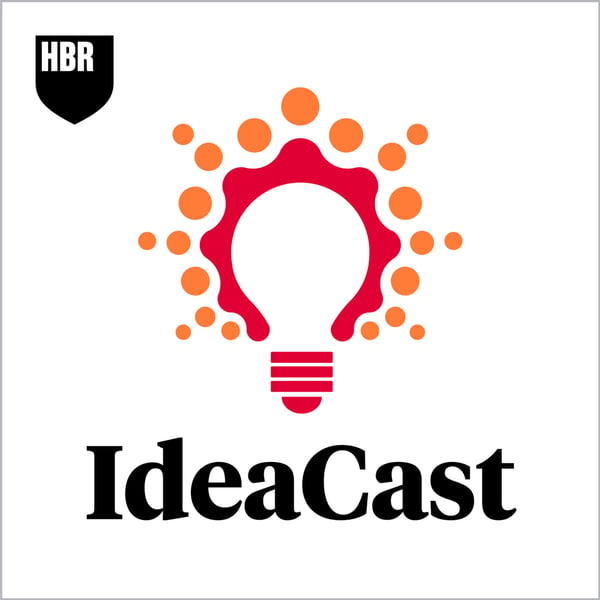4 Business Ideas That Changed the World: Emotional Intelligence
HBR IdeaCast
Harvard Business Review
4.4 • 1.9K Ratings
🗓️ 27 October 2022
⏱️ 45 minutes
🧾️ Download transcript
Summary
Transcript
Click on a timestamp to play from that location
| 0:00.0 | Welcome to four business ideas that change the world, a special series of the H.B.E.R.I.D.A.C.A.C.S.D. |
| 0:22.0 | In the early 1990s, when science journalist Daniel Goldman wanted to publish a book on emotional intelligence, |
| 0:27.0 | he was told that he couldn't use the word emotion in business. After all, companies weren't supposed to care about that kind of stuff. |
| 0:34.0 | That belief informed much of H.B.E.R.'s first century. When the magazine was founded in October 1922, |
| 0:41.0 | managers were focused on physical productivity, a calculation of manufacturing output with labor input. |
| 0:47.0 | And while over the decades, psychologists studied social intelligence and emotional strength, |
| 0:52.0 | and the idea that intelligence was more than just a single general ability, businesses cultivated financial acumen, operational research, |
| 1:00.0 | and the other so-called hard skills that improved the bottom line. |
| 1:04.0 | Then, in 1990, psychologists Peter Salave and John Mayer published their landmark journal article, Emotional Intelligence. |
| 1:13.0 | It proposed E.I. as the ability to identify and manage one's own emotions, as well as the emotions of others. |
| 1:19.0 | Dan Goldman popularized this idea in his book, and it quickly moved into widespread practice. |
| 1:25.0 | Companies now hire for it and teach it, and it's seen as key to authentic and empathetic leadership, |
| 1:30.0 | one of the key pillars to an inclusive organization. |
| 1:34.0 | Critics, however, question whether emotional intelligence is actually an intelligence, |
| 1:38.0 | one that can be quantified like IQ is, or one that can be taught to people who don't have it. |
| 1:43.0 | On this special series from H.B.E.R.I.D.A.CAST, |
| 1:46.0 | we're exploring four business ideas that change the world. |
| 1:49.0 | This week, Emotional Intelligence. |
| 1:51.0 | With me to discuss it, our Daniel Goldman, psychologist and author of Emotional Intelligence, |
| 1:56.0 | Susan David, psychologist at Harvard Medical School, and author of Emotional Agility, |
| 2:01.0 | and Andy Parks, management professor at Central Washington University. |
| 2:06.0 | And I'm Alison Beard, executive editor at Harvard Business Review, and your host for this episode. |
... |
Please login to see the full transcript.
Disclaimer: The podcast and artwork embedded on this page are from Harvard Business Review, and are the property of its owner and not affiliated with or endorsed by Tapesearch.
Generated transcripts are the property of Harvard Business Review and are distributed freely under the Fair Use doctrine. Transcripts generated by Tapesearch are not guaranteed to be accurate.
Copyright © Tapesearch 2025.

